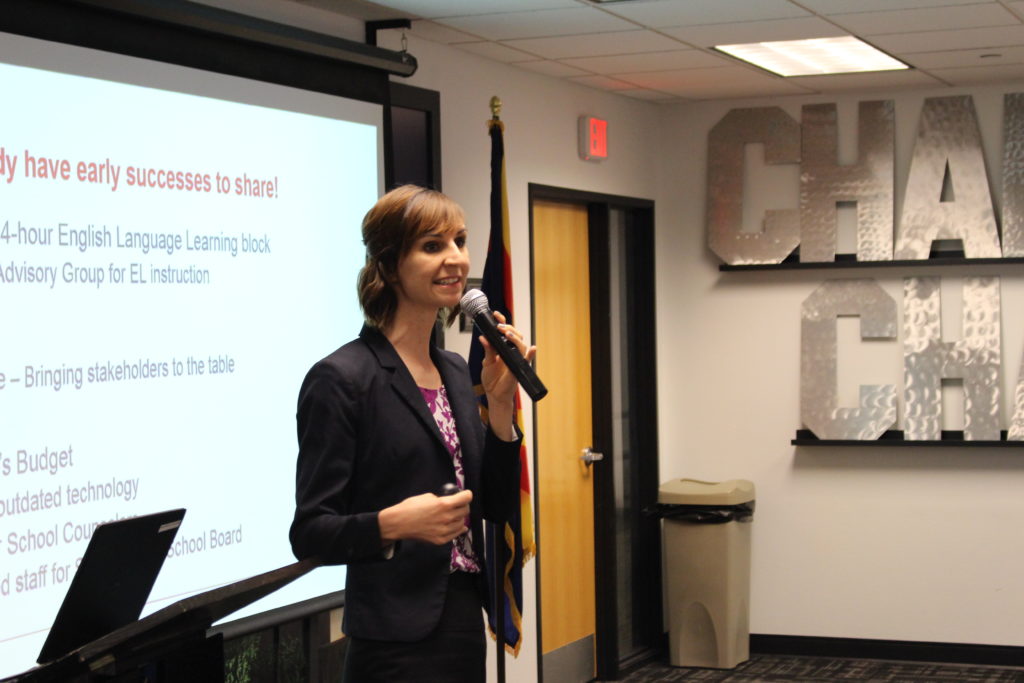
By Noah Kutz
High schoolers and parents, listen up. Arizona’s superintendent of public instruction has plans for the reform of the state’s public school system, particularly in preparing kids for the real world from grade school onward.
At a recent meeting hosted by the Chandler Chamber of Commerce, attendees participated in a “State of the School System” address from state schools chief Kathy Hoffman as she presented her policies and plans for the future and answered questions regarding Arizona’s public schools, particularly in the Chandler area.
Since taking office in January, Hoffman noted that she has been able to revamp the communications and policy offices within the Department of Education, with a desire to return to the concept of it being an agency of service rather than a compliance-driven organization.
Some of the primary goals she outlined for her position are fixing the system for English-learning students and aiding teenagers in the middle-and high-school levels in situations that require counselors, as well as ways to prepare them for life as young adults.
Recently, Hoffman said, the Education Department’s Office of English Language Learning Acquisition has worked on producing a strong program to help students who do not speak English to successfully complete school and become proficient in the language.
Prior to this change, the policies for teaching English-learning students produced a high school graduation rate of 18 percent, the lowest success rate in the country, according to the Superintendent.
For teaching these kids, Hoffman said the department has put programs in place to ensure the teachers are best suited for this enormous task.
Regarding the former method of teaching English-learning students, she says:
“There will be a transition period as we move away from this model, so we’re working very actively with our schools to make sure people know what is the best practice.”
Additionally, Hoffman intends to create a supportive environment for students’ social and emotional well- being throughout middle-and high-school by increasing the number of counselors in each district.
She showed support for several schools she has seen across the state that implement strong hands-on programs for students, as well as programs that help students become more prepared for college.
After visiting a middle school in Yuma, Hoffman said, “Students were learning baking skills in their culinary class and then, outside, the carpentry students were building a shed for their garden… and that’s middle school.”
She also highlighted a high school student who will graduate with three associate’s degrees after their senior year.
Many of the Chandler businesspeople who attended the meeting agreed that a very important part of high school is remembering to teach and develop the students who do not desire to go to college after graduation.
Oftentimes, she said, special attention is given to those who are preparing for college, while the technically-skilled students are left to graduate without enough formal support from their mentors.
Hoffman vociferously acknowledged this point, adding she plans to introduce a learning environment for high schoolers that will better prepare them to embrace the real world and hit the ground running, no matter their path.

